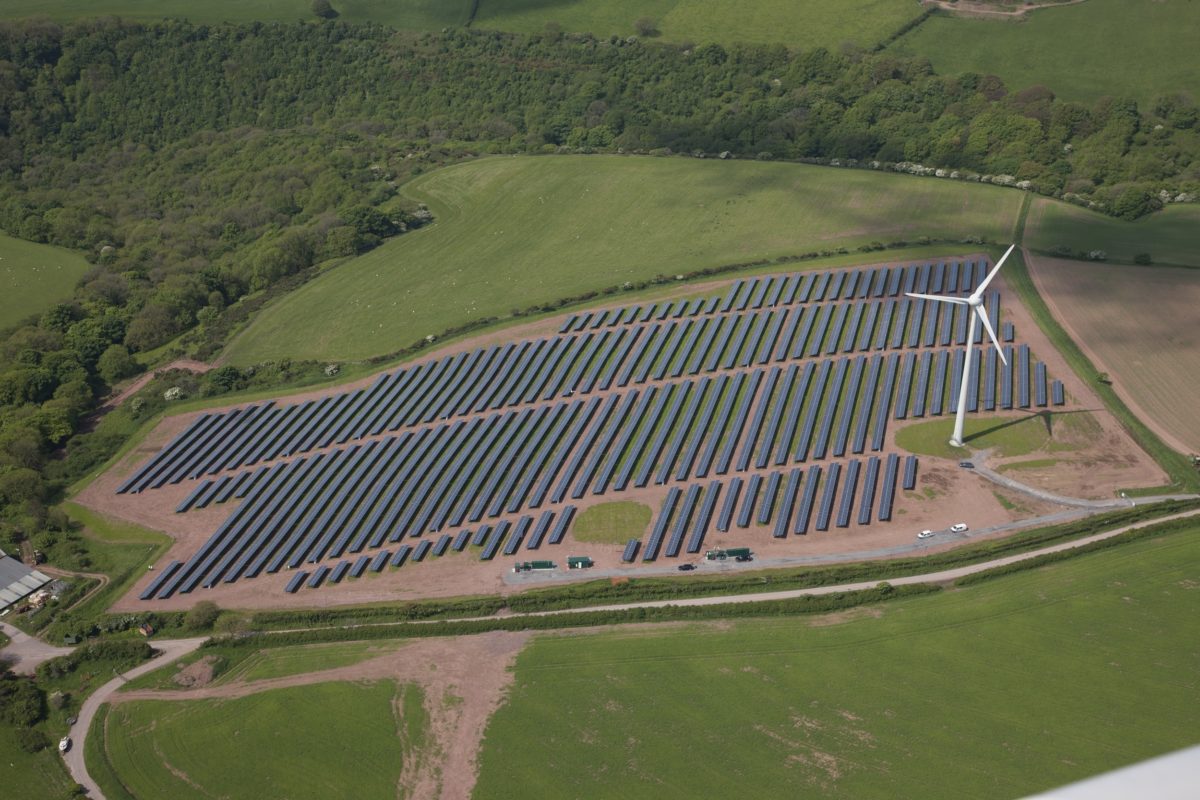As the energy landscape undergoes major transformation, with a growing share of renewables on the grid and consumers abandoning traditional energy supply models, the U.K. is looking for the the right path to achieve its 2050 goal of cutting carbon emissions by 80% from 1990 levels.
Only two out of four proposed scenarios in the U.K. National Grid’s annual Future Energy Scenarios report show that this is possible. The main message is clear – regardless of the level and speed of decarbonization, the electricity system will need to change and adapt.
Renewables
Both decarbonization scenarios that meet the 2050 target involve large growth in renewable generation. One is based on a more decentralized approach – supported by storage and smart appliances, and the other is more centralized, involving nuclear and gas-fired generation using carbon capture utilization and storage.
Under the decentralized scenario, titled Community Renewables, the amount of solar capacity will soar from 12 GW in 2017 to 66 GW in 2050.
This may look hard to reach at this point, given that the country’s installations have slowed down dramatically, due to reduced policy support. However, National Grid points out that deployment for most low carbon technologies will continue thanks to reductions in cost, technology development and co-location with storage.
Greater grid flexibility will also be needed for cost-effective intermittent renewables to show their full potential in lowering peak demand and setting new records.
According to the report, low carbon and decentralized generation capacity can increase from 103 GW today, to between 189 GW and 268 GW by 2050, with the more decarbonized scenarios requiring the highest capacities. Up to 65% of generation could be local by 2050.
EV uptake
The acceleration of the electric vehicle (EV) market is presented as one of the key steps in building a carbon-free future. National Grid estimates that the number of EVs could swell to 11 million in the U.K. by 2030, and to as much as 36 million by 2040.
Good news for the air quality, but a challenge for the grid stability, as this means that balancing demand and supply, and power flows will become increasingly complex.
Popular content
But, with the help of smart charging and vehicle-to-grid technology, EVs could increase peak electricity demand in Britain by a maximum 8.1 GW by 2030, only 14% up from 2017.
In return, a strong EV uptake could be a win-win for all sides, as the batteries tied up in EVs can support the rollout of renewables and be used for grid services, such as frequency regulation and demand response.
Earlier this year, National Grid said it was looking to support the installation and development of ultra-rapid, directly connected EV charging points along the U.K.’s major motorways.
This week, the British government announced a significant investment in EV charging infrastructure, including £30 million R&D investment in smart charging points.
Low levels of public concern
Meanwhile, the typical Briton is mildly concerned by climate change.
According to the latest British Social Attitudes Survey conducted by the National Center for Social Research, only a quarter of the public has major concerns over the impact of global warming, and only a third thinks that human activity is the main cause of climate change.
Despite the low levels of public concern, the survey finds that the average person is not particularly optimistic that governments or individuals will take sufficient action to reduce their energy use.
Moreover, the survey shows that few people feel they should restrict their energy use, in order to address global warming, out of fear that it might be fruitless and naive to restrict their own energy use, when there are no guarantees of other people doing the same.
This content is protected by copyright and may not be reused. If you want to cooperate with us and would like to reuse some of our content, please contact: editors@pv-magazine.com.



By submitting this form you agree to pv magazine using your data for the purposes of publishing your comment.
Your personal data will only be disclosed or otherwise transmitted to third parties for the purposes of spam filtering or if this is necessary for technical maintenance of the website. Any other transfer to third parties will not take place unless this is justified on the basis of applicable data protection regulations or if pv magazine is legally obliged to do so.
You may revoke this consent at any time with effect for the future, in which case your personal data will be deleted immediately. Otherwise, your data will be deleted if pv magazine has processed your request or the purpose of data storage is fulfilled.
Further information on data privacy can be found in our Data Protection Policy.